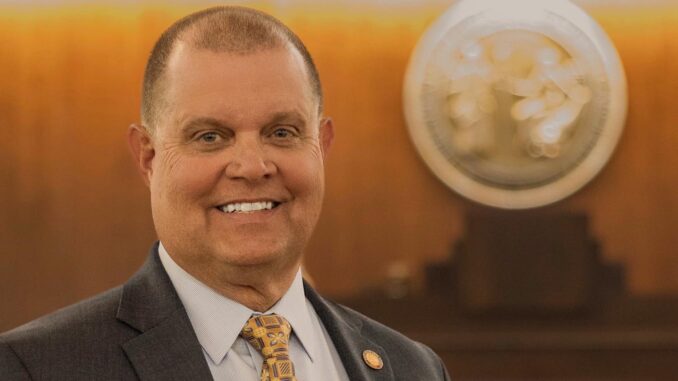
Every policymaker, school administrator, teacher, and parent ought to be able to agree on one thing — our common goal for K-12 education is to equip the next generation of North Carolinians with the tools they need to become responsible citizens, life-long learners, and productive members of society.
This week, as we celebrate National School Choice Week, I encourage you to consider your own learning habits. Some of us love to read books or articles, others prefer audiobooks or lectures, and many are visual learners, or learn from hands-on experience. There is no “correct way” to learn, and that’s part of what makes student-centered education such an important policy goal.
There is a common misconception amongst the education establishment in North Carolina that school choice is working against the public education system. This could not be further from the truth. In fact, allowing parents to have options for where to send their children to school creates an environment of healthy competition, leading to a whole K-12 system where education is of greater quality, lower cost, and with better outcomes. School choice puts a check on the public school system, forcing the bureaucracy to be more responsive to the feedback of parents and individual teachers, both of whom have a vested interest in the success of their students.
If the last year of at-home learning has taught us anything, it’s that parents have a significant interest in their children’s education. Why shouldn’t parents have a say in the education choices available to their children? Education is not one-size-fits-all. School choice is all about empowering families to seek out the learning environment that leads to the greatest success in their child’s educational performance and outcomes.
North Carolina offers several options for parents when it comes to schooling their children: homeschool, free online learning programs, charter schools — which receive public funding and offer greater flexibility than traditional public schools — and Opportunity Scholarships, a tremendously successful program that cannot be ignored.
Opportunity Scholarships were enacted by the General Assembly in 2013 to allow students from low-income families to attend the school that best fits their educational needs and aptitudes. We recently strengthened the program in the State budget, now offering up to $5,900 per year to help families pay tuition costs. In under a decade, this high-demand program has had a monumental impact on the success of K-12 education in North Carolina, such that more than 16,000 students received Opportunity Scholarships for the 2020-2021 school year.
Research has found that school choice programs save North Carolina taxpayers between $74.1 million and $154.3 million. Additionally, countless national studies have found that Opportunity Scholarships actually improve the performance of public school students, as well as those who use the scholarship to attend private schools.
The success of school choice in North Carolina has been a tremendous undertaking by public policy advocates such as Mike Long of Parents for Educational Freedom and Terry Stoops of the John Locke Foundation’s Center for Effective Education, tactfully implemented by General Assembly leaders such as Representatives Dean Arp, Hugh Blackwell, and John Torbett, just to name a few.
While we have much to be grateful for in the success of North Carolina’s school choice programs, we have more legislative work to be done. For example, North Carolina remains one of only three states with no form of open enrollment, which allows students to enroll in district schools outside of their designated jurisdiction.
Furthermore, we need to take a serious look into implementing money-follow-the-child programs, as have been implemented with great success in Kansas. This may look like a tax credit for parents that homeschool or pursue online learning programs for their students, or public funds transferred between jurisdictions of public education. Ensuring that money follows the child simply means that per-student spending moves with the student, regardless of their education outlet of choice.
Regardless of opinion on public or nonpublic schools, we must be united in this: Every North Carolina student deserves the best environment to learn that we can deliver, regardless of their zip code. It’s time for education to serve students, not the system.
State Rep. Charlie Miller (R-Brunswick) serves on the Education K-12 Committee in the NC House of Representatives, and has previously served as a member of the Board of Education in Brunswick County, N.C.


